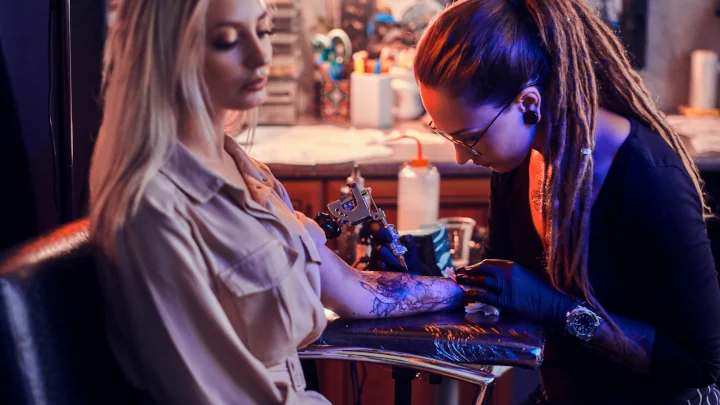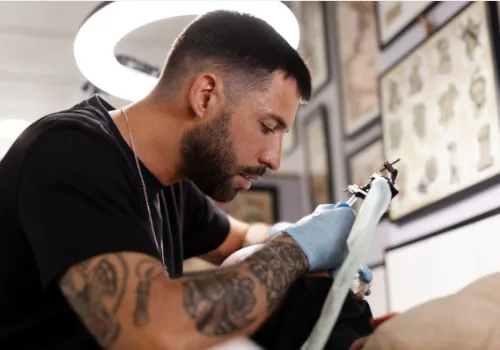Safety in the Tattoo Studio: How do you Get an Infection?

Safety in the tattoo studio: why is sterilization of tools in an autoclave so crucial? Tattoo parlors are a place where creativity and art meet professionalism.
For health reasons, professionalism should also be manifested in the area of caring for the safety of customers. One of the key aspects in maintaining high hygiene standards is the sterilization of treatment tools.
Safety in the Tattoo Studio
Let’s take a look at why it is so important, what infection risks may occur in a tattoo parlor and what benefits effective sterilization brings.

Infections in a Tattoo Parlor
In a tattoo salon, there is a risk of transferring various pathogens to the client, such as viruses, bacteria or fungi. This can happen through instruments and treatment tips.
The tattoo process involves direct contact of tools with the client’s blood and skin tissues, which poses a potential health hazard.
Improper hygiene and inappropriate sterilization practices can lead to infections, including bloodstream infections, hepatitis virus (HCV), bacterial skin infections and even HIV.
Ways of causing infections
Infections in a tattoo parlor can occur through various paths. First of all, tools used for tattooing, such as needles, tubes or machines, may be a source of pathogen transmission.
In addition, incorrect sanitary and hygienic practices, such as lack of disinfection of work surfaces or improper storage of tools, may increase the risk of infections.
Complete sterility of treatment tools is achieved thanks to a device called AUTOCLAVE, which is produced, among others, by the market leader Enbio. As the specialists from PureClave (an authorized distributor of Enbio) say,, only pressure steam sterilization in an autoclave guarantees full sterility of the tools.
The Impact of Instrument Sterilization on Safety
Sterilization of surgical tools in a tattoo parlor is extremely important because it is the first line of defense against infection.
An effective sterilization process eliminates microorganisms such as viruses, bacteria and fungi that may be present on instruments after previous treatments.
Thanks to this, the client can be sure that each tool used during the tattoo is free from potential health hazards.
Professionalism and Customer Trust Thanks to Sterilization
In a tattoo salon, as in the case of beauty salons, professionalism and attention to customer safety translate into a positive reputation of the salon.
Customers expect that the salon applies the highest hygiene standards, such as: effective sterilization of tools. A salon that takes care of these aspects builds customer trust, which translates into satisfaction and loyalty.
Conclusion
In conclusion, even though tattoo studio make an effort to keep a clean and safe atmosphere, infections can still occur. To reduce the risk of infections, it is essential that tattoo artists and customers follow strict cleanliness guidelines and appropriate aftercare protocols.





